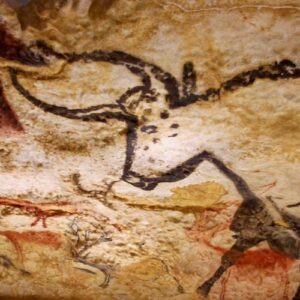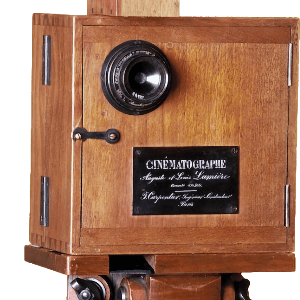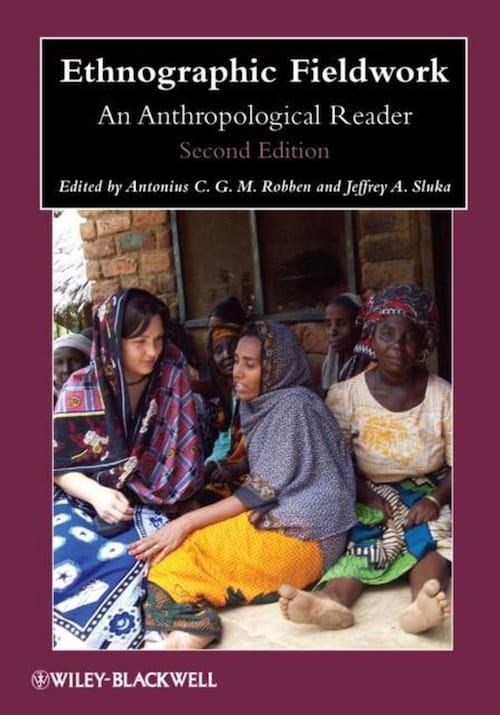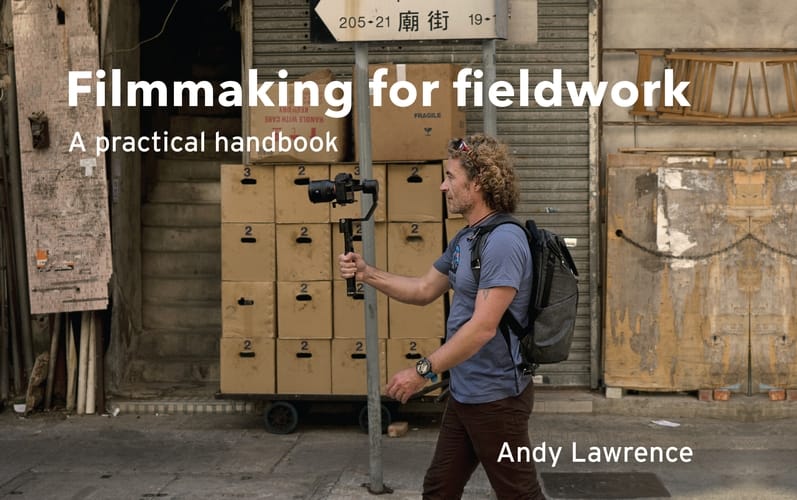Course Objectives
- Helping the MSc student to systematically formulate questions central to their research, positioned in relation to relevant academic debates.
- Providing practical preparations for the complexities of fieldwork, given the operationalization of research questions.
- Critically exploring the possibilities offered by audiovisual means, in relation to both conducting anthropological fieldwork and producing empirically-based audiovisual research outputs.
Modes of Instruction
- This course is designed around a series of modules that combine practical skill training with conceptual theoretically-driven frameworks. Rather than suggesting that Practice and Theory are mutually exclusive, these combinations will help you think more dynamically about your research practice and how it can speak to scholarly concerns.
- As explained on the About page, this online platform provides you access to a variety of self-paced lessons and supplementary materials. These components are complimented by face-to-face meetings where you will practice your new skills, get feedback, and discuss material.
- Interwoven throughout these modules are a series of Supervisory Group Meetings designed to workshop a series of writing assignments that will help you develop your thesis project research proposal due in December. You should read all your group member’s assignments prior to the session and be prepared to share your feedback.

Modules
[widget id=”advanced-sidebar-navigation-menu-2″]
The course utilizes a modular framework to engage with a series of different methodological approaches structured around drawing, sound, video, and photography. On the one hand, these modules provide an intensive framework for practicing these new experimental methodologies and attuning your research skills. Students will be instructed on a series of multimodal research approaches, which have been designed to foster a practice-based approach to ethnographic research. On the other hand, these modules have a conceptual framework that will help you develop your proposal. These are designed to help you conceptualize visual ethnography as a methodological approach that lifts multimodal practices from a set of tools and techniques into a coherent system for engaging with research topics.
Preparations
The first part of every module requires you to prepare your equipment ahead of class and review the provided guidelines and instruction videos (Tutorial videos and readings should be completed before the first class session). You must also review the online video lectures that feature intellectual engagements with the field (Seminar videos and readings should be completed before the second class session). Each seminar module includes a selection of literature and media-based work for you to engage ahead of the meetings, which will serve as the basis of discussion during the seminar session. Always complete these ahead of the meeting and be sure to reflect on them in your journal.
Class Sessions
Each module consists of two class sessions (video receives more attention during the Methods in Practice week and during the Field Preparations program).
- The first meeting focuses on practicing technical skills to become secure in using the equipment before you are put in more challenging circumstances. This session will provide intensive hands-on training that prepares you to independently execute your Field Study Assignment.
- The second meeting serves as a seminar to discuss the readings and other course materials in more depth and situate the practice-based elements within a more conceptual framework.
Assignments
Research Proposal Assignments (RPA)
A series of written assignments have been created to help you develop your proposal. These will be introduced with brainstorming activities in biweekly Proposal Writing Exercises. In a shared Googledoc folder, students will find templates for a series of RPAs, where students will save their own response, and review fellow members assignments. These will serve as the basis of discussion during part of your Supervisory Group (aka “soup group”) bi-weekly meetings. RPAs should be submitted in the appropriate Googledoc folder no later than 23:59 on the Friday before the next Supervisory Group session.
Research Proposal Assignment 1 Due date: 4 September
Research Proposal Assignment 2 Due date: 18 September
Research Proposal Assignment 3 Due date: 9 October
Research Proposal Assignment 4 Due date: 23 October
Research Proposal Assignment 5 Due date: 13 November
Field Study Assignments (FSA)
In an effort to understand how these different approaches interrelate, you will be executing a series field studies in each of these modalities at one specific field site, thus scaffolding the insights from one study onto the next in a process of constructing substantive knowledge. During each unit you will be asked to assess your field site through a new modality, which aims for students to build a repertoire of complementary skills, in which you will utilize drawing, photography, video, and audio recordings in order to develop a holistic and agile media-based research practice. Elaborating your study both through the modes of practice and by moving back and forth from your ‘site’ to the ‘studio/lab’ should enable discoveries that help you to continually transform your recording strategies. You will assemble these field studies into mode-specific assignments — drawing, photography, audio, and video. FSAs should be submitted to Pitch2Peer (P2P) no later than 23:59 on the Monday before the next Supervisory Group session.
Field Study Assignment 1 Due date: 7 September
Field Study Assignment 2 Due date: 21 September
Field Study Assignment 3 Due date: 12 October
Field Study Assignment 4 Due date: 16 November
Field Study Assignment 5 Due date: 27 November
Peer Review
A cornerstone of our approach stands on providing extensive feedback on each student’s work. In order to maximize this effort, we have devised several mechanisms to produce peer, instructor, and supervisor feedback. This happens one-to-one on Field Study Assignments submitted to Pitch2Peer. This happens in small groups online with Research Proposal Assignments submitted to googledocs. This happens in plenary CRIT sessions. All students are expected to provide feedback and all students are expected to be receptive to critiques.
FSA Peer Review
Students will be assigned to P2P groups that differ from their Supervisory Group to ensure that they get diverse and varied feedback. Guidelines are provided to structure the feedback around specific considerations. P2P will assign students two peers to evaluate. For full credit peer reviews should be completed within 4 days (Friday 23:59).
RPA Peer Review
All group members should provide their feedback in their peers’ respective Googledocs by 14:00 on Monday. This gives your supervisor time to read and comment on each student’s assignment and add to the peer feedback in advance of meeting. In the Supervisory Group meeting, students will be expected to reflect on the feedback they have received.
Crit Presentations
Some assignments are made specifically to share with the whole class. Periodically, we will have longer class sessions, in which audiovisual work will be presented in multimodal combinations to the whole class for live feedback by your peers and instructors. Giving feedback is an important skill to develop. While it is understandable to feel insecure about new work, we feel that it is crucial for you to hear how others perceive your work on its own terms. For this reason, we commonly do not let producers explain their work or respond to ‘misunderstandings’ until the very end of the feedback. We are not interested in judgment values, but honest and engaged assessments. If we take audiovisual scholarship seriously, then we need to also critically exchange ideas about our work and our peers’ work. We borrow the notion of “crit” (short for criticism) from the art world, where practitioners must regularly present their work to peers and instructors. For more about this feedback form look here. Upload your Crit Presentation to the Kaltural Media Gallery by 23:59 on the day before each Crit Session.
CRIT1 Presentation Due date: 28 September
Assessment
Our approach to grading is meant to facilitate innovative work rather than perfection of standards. This is meant to reduce pressure for perfection and encourage experimentation. Accordingly, if you complete all the assignments on time and show a commitment to engaging the criteria for each element, then you will automatically earn 8,0 for the course. The grade can increase with exceptional work, but failure to engage the assignments in a meaningful way or to complete work by the assigned deadlines will result in a lower grade. Rather than merely an average of each assignment, a final graded assessment will take into account your overall investment and development of research ideas over the semester. Each individual assignment will be marked ‘plus’ or ‘minus’; if you receive a ‘minus’ on an assignment it must be resubmitted
The expectation is that all the assigned work is completed in a timely manner. As such, a missing assignment will result in 0,5 overall point reduction (in other words more than 4 missing assignments results in failing the course). A late assignment will result in 0,25 overall point reduction. Students are also expected to provide peer review of Field Study Assignments using the Pitch2Peer (P2P) interface accessible in Blackboard as well as in-person feedback on Research Proposal Assignments during the Supervisory Group meetings. Reviewers should take seriously the task of providing actionable critical feedback. Guidelines will be provided in each module to guide students in making well-structured assessments. These peer reviews are an integral part of the assignments, so failure to complete these peer reviews or tardiness in completing them will result in the same grade reduction as outlined above.
- 40% – FIELD STUDY ASSIGNMENTS (FSA), CRIT PRESENTATIONS, & PEER REVIEW
A series of assignments meant to put your skills into practice. Our assessment will consider five main factors:- Has the student met the parameters of the assignments?
- Has the student demonstrated an effort to master technical skills?
- Has the student engaged intensely with the field site and topic?
- Has the student made an effort to experiment with different formal aspects?
- Has the student provided consistent and constructive review of peer assignments?
- 40% – RESEARCH PROPOSAL ASSIGNMENTS & FEEDBACK
This consists of five written assignments. Assessment will consider four main factors:- Has the student met the parameters of the assignments?
- To what extent has the student provided a coherent message in the assignments?
- To what extent has the student demonstrated complexity of thinking?
- Has the student provided consistent and constructive review of peer assignments?
- 20% – JOURNAL ENTRIES
Students are required to keep an ongoing ‘field journal’ through the year that specifically reflects on tutorial exercises, field studies, and method reflections. You will submit your journal to your supervisor at the end of each phase of the program. The first due date is 1 December and will be returned to you the following week in your one-on-one supervisor meeting. The journal will be collected again after you return from the field and after the Thesis Seminar. Assessment will consider four main factors:- Does it demonstrate depth of engagement with the course materials?
- Does it provide the appropriate basis for keeping a field journal?
- Does it make at least three 1-page entries each week?
- Is each entry at least 100-words long or does it provide the equivalent level of attention in drawing, mapping, or alternative kinds of engagement?
See an excellent example of journaling by our former student, Renate Bijlholt.
Literature and Other Course Materials
During the year you will need to read and be able to refer to the following required texts in addition to shorter texts available electronically from the LU library. We will make a bulk discounted purchase of the Filmmaking for Fieldwork text that you should indicate on the intake form.
Complete Sections 1-3 (120pp) before the MiP week (26 October)
Complete Sections 4-5 (70pp) before the Field Preparations (1 December)
- Viewings will primarily be selected from the library’s subscription to the four volumes of Ethnographic Video Online published by Alexander Street Press.
- Additional audio/visual materials are accessible through each module.






